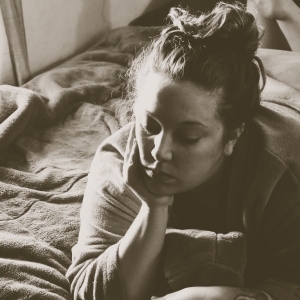If you think that you’re struggling with depression, keep in mind that there are also many others out there who are similarly experiencing what you’re going through right now. Clinical depression is considered as one of the most common mental health problems today. In fact, it has been estimated that nearly 121 million people worldwide are suffering from depression. Statistics show that the number of people diagnosed with clinical depression increases by around 20 % each year.
Just like many others, you might be questioning “why am I depressed?”. You might think that there’s no explanation for you to feel depressed. It’s important to understand that depression can affect any individual, regardless of age, gender or status. There are even lots of successful people who have come out in the open and talked about their personal battle with depression.
It’s important to realize that there’s not a single type of treatment that can cure all kinds of depression. Understand that what may be effective for some individuals may not be just as helpful in helping you feel better. The good news is, there are many different treatments of depression for you to try. You just need to make an effort, and be patient enough in trying different treatments to help you find the right one for you.
The most effective prescription for depression may vary from one person to another. This relies on which type of medicine or treatment option is most effective in offering you relief from your symptoms. There are different kinds of prescribed medication for clinical depression, also known as antidepressants. The following are the main types of antidepressants: tricyclic antidepressants, selective serotonin reuptake inhibitors, monoamine oxidase inhibitors, serotonin and norepinephrine reuptake inhibitors and other types of medication, like bupropion and mertazapine.
Can Depression Cause Sleep Disorders?
Research studies indicate that there’s a connection between depression and stress. It has been found that lack of an adequate amount of sleep can make a person more prone to dealing with clinical depression. Furthermore, it has also been discovered that depression can lead to insomnia, a sleep disorder that is commonly gone through by some people with depression and other mood disorders.
Moreover, scientists found that in some individuals, symptoms of depression appear first before finding an onset of sleep disorders. In others, symptoms of sleep problems are seen first than depression. A lot of experts concur that managing sleep problems that accompany clinical depression can be the key to an effective depression treatment. Evidences suggest that sleep therapy for depression, also referred to as cognitive behavioral therapy for insomnia or CBT-I can be more helpful than other treatments of depression. Researchers found that curing sleep problems in people with clinical depression can boost their chances of accomplishing a full recovery.
Can Depression Contribute To Symptoms Of Fatigue?
Are you often experiencing symptoms of fatigue lately? There are many reasons why you could be feeling a certain way. Some of the possible reasons include sleep problems, poor diet, too much stress, or you may be suffering from depression or other illnesses. It’s important to be aware that constantly experiencing exhaustion isn’t normal. Being constantly stressed and tired for weeks and even months at a time can be a sign of depression. Sleep disorders may also be a contributing factor to depression and fatigue. Be aware that lack of sleep can eventually lead to poor mental and physical health.
Realise that you need to recharge and give yourself an appropriate amount of sleep to keep you healthy. If you’re finding it hard to fall and stay asleep, it’s important for you to do something about it. Seek help from a therapist or a doctor and identify other things you can do to help you experience a deep sense of relaxation like mindfulness and meditation.
Being depressed can often make you feel helpless, but there’s always something you can do to feel better. Depression is a serious mental illness that can be managed. Remember that with the proper treatment and support, it’s always possible to to beat depression.
It’s true that there are lots of people out there who can give you support and guidance towards your depression recovery. But remember that it’s only you who’s ultimately responsible for helping yourself get better. If you’re wondering how to help yourself get over depression, a good way to start is to switch to a healthier way of life. Realise that in order to keep yourself physically and mentally healthy, the key is to live a healthy lifestyle. Keep away from unhealthy foods and make sure that you’re eating foods that are rich in the essential nutrients and vitamins that your brain needs for proper functioning. There is a known relationship between depression and sleep. Researchers say that insomnia could trigger an onset of a depressive episode. Realize that you need to give yourself a good rest. So, make an effort to get a proper amount of sleep during the night.
